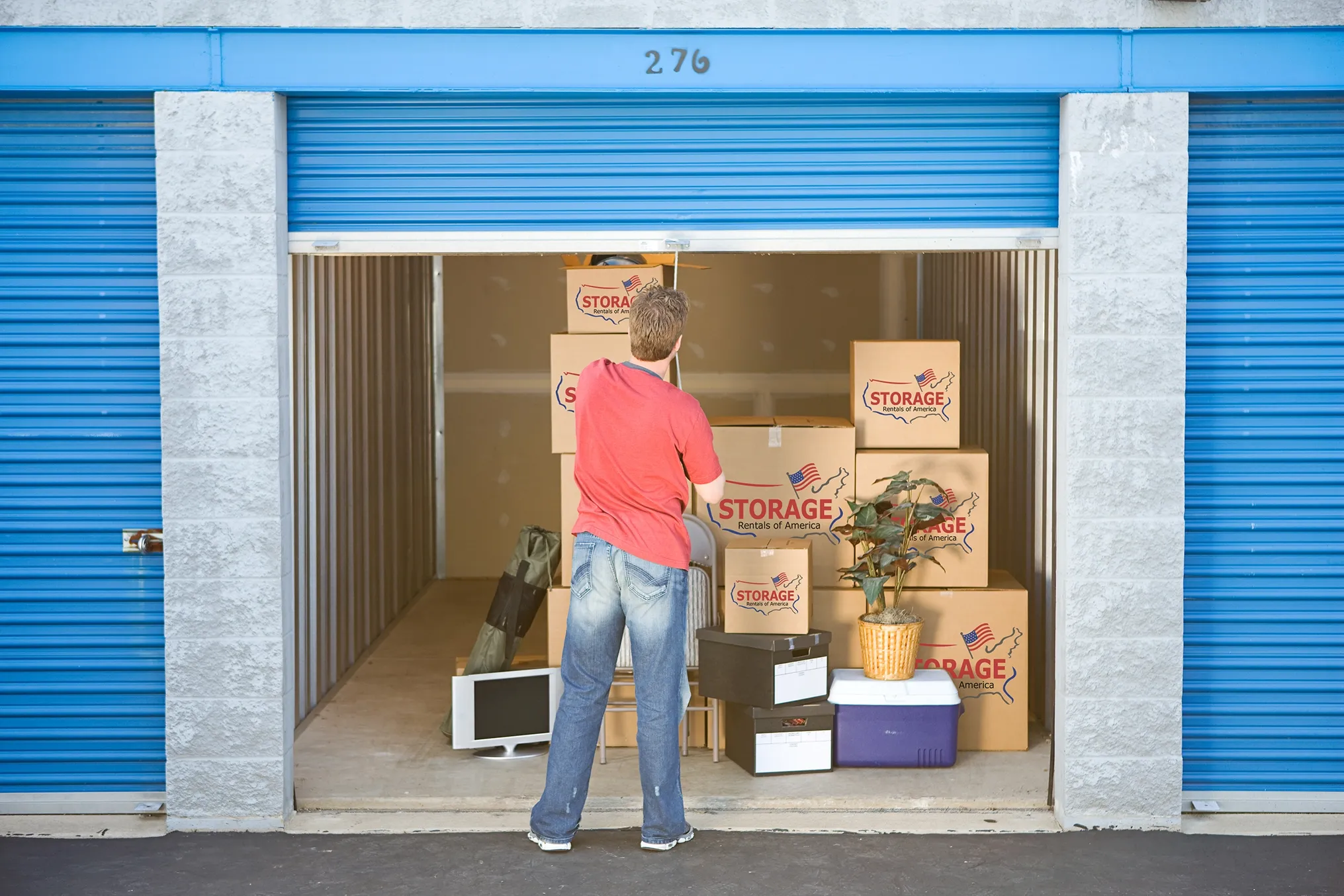
 Storage Tips
Storage TipsA Guide: Protecting Your Furniture from Heat and Humidity
Summer Storage Safety and Tips
Welcome to Your Ultimate Summer Storage Guide
Storing belongings during the hot summer months demands careful preparation, especially when high temperatures and humidity pose a threat to your valuable items. Properly planned storage is more than stacking boxes—it's about proactively protecting your possessions from damage caused by heat, moisture, and pests. This page delivers comprehensive strategies and practical advice, ensuring your belongings remain safe, organized, and in excellent condition, even through the hottest months of the year.
1. Understanding the Risks of Summer Storage
Summer introduces two major threats to stored belongings: extreme heat and elevated humidity levels. High temperatures can warp wooden furniture, melt plastics, deteriorate electronics, and cause irreversible fading to fabrics, artwork, or photographs. Elevated humidity is equally harmful, promoting mold and mildew growth, which can swiftly destroy textiles, paper documents, and upholstered items. Items stored in non-climate-controlled spaces, like garages or outdoor sheds, are especially susceptible, as temperatures in these areas frequently soar beyond 100°F, drastically shortening the lifespan of your belongings.
- Heat accelerates aging, leading to brittle plastics and discoloration.
- Humidity creates an ideal environment for mold, pests, and unpleasant odors.
- Lack of proper airflow compounds moisture problems and hastens deterioration.
Understanding these risks underscores the importance of careful summer storage planning.
2. The Advantage of Climate-Controlled Storage
Choosing a climate-controlled storage unit dramatically reduces the risks associated with summer heat and humidity. These units maintain stable temperatures between 55°F and 80°F, as well as controlled humidity levels, creating a safe environment for sensitive belongings. Items like electronics, musical instruments, antiques, and upholstered furniture significantly benefit from such controlled conditions, as they are particularly susceptible to heat-induced damage.
Benefits include:
- Consistent temperatures prevent warping, cracking, and melting.
- Controlled humidity prevents mold and mildew.
- Reduced pest activity due to regulated environmental conditions.
- Extended lifespan of valuable possessions, maintaining their value.
Given these advantages, climate-controlled units are the ideal storage solution during summer.
3. Items to Avoid Storing in Hot Conditions
Certain items should never be stored in non-climate-controlled units, especially during hot summer months. These include candles, batteries, pressurized aerosol cans, cosmetics, medications, photographs, and vinyl records, all of which can degrade rapidly or pose safety risks when exposed to high temperatures. Additionally, perishable items such as food should always be excluded from storage to prevent pest infestations and unpleasant odors.
- Avoid electronics without climate control to prevent overheating and internal damage.
- Exclude chemicals or pressurized containers due to explosion risks.
- Keep documents, books, and photos in climate-controlled conditions to avoid damage.
Knowing what not to store is just as important as knowing how to store correctly.
4. Preparing and Cleaning Your Items for Storage
Thoroughly cleaning your items before storing them is essential, as residual dirt or moisture can escalate deterioration during summer. Wipe down all furniture with mild soap and water, polish wood surfaces, and condition leather items. Clothing, linens, and fabrics should be washed, fully dried, and neatly folded or hung.
- Use appropriate furniture cleaners, avoiding harsh chemicals.
- Allow several hours for drying to ensure complete moisture removal.
- Polish wooden items to create a protective barrier.
- Condition leather products to prevent drying and cracking.
Taking these proactive steps helps maintain the condition and longevity of stored belongings.
5. Proper Packing Materials and Techniques
Selecting the right packing materials significantly influences your items' safety. Opt for airtight plastic containers with secure lids rather than cardboard boxes, which absorb humidity and attract pests. However, avoid tightly sealing delicate textiles or upholstered items, as they require breathable wrapping. Cotton sheets, moving blankets, or professional fabric covers are ideal solutions.
- Plastic bins are perfect for books, tools, and electronics.
- Avoid plastic wrap or garbage bags around furniture to prevent condensation buildup.
- Incorporate moisture absorbers, such as silica gel packs, in sealed containers.
Using proper packing methods ensures maximum protection and reduces heat-related risks.
6. Elevation and Air Circulation Techniques
Always elevate stored items to prevent damage from unexpected moisture accumulation or flooding, common in summer storms. Pallets or shelving units work excellently to raise your belongings above floor level. Also, ensure sufficient gaps between stored items and walls to facilitate airflow and reduce humidity buildup.
- Elevated storage prevents water damage from flooding or condensation.
- Improved airflow minimizes mold and moisture accumulation.
- Proper spacing makes inspections easier and keeps belongings accessible.
Elevation and ventilation practices significantly enhance item protection.
7. Organization, Inventory, and Labeling
Good organization is crucial for easy access and reduces exposure to prolonged heat when retrieving items. Label boxes clearly, indicating contents, storage date, and handling instructions. Maintain an inventory list to help quickly locate needed items, reducing unnecessary exposure to heat.
- Label containers with room and item categories (e.g., "Kitchen–Glassware–Fragile").
- Keep frequently needed items near the front for convenient access.
- Inventory helps track and quickly retrieve stored belongings, minimizing disruption.
Effective organization safeguards your possessions while making summer retrieval more convenient.
8. Personal Health and Safety During Summer Storage
Personal safety while moving items during summer heat is equally important. Drink water regularly, schedule storage visits during cooler times of the day, and rest frequently in shaded areas. Never leave children or pets unattended in vehicles or storage facilities, even momentarily, due to extreme heat risks.
- Hydrate regularly and recognize signs of heat exhaustion (fatigue, dizziness).
- Schedule visits early in the morning or late evening to avoid peak heat hours.
- Take regular breaks, ideally every 30–45 minutes, during moving or packing.
Prioritize personal health and safety when managing summer storage activities.
9. Pest Prevention and Regular Inspections
Summer storage conditions can attract unwanted pests, particularly when food or improperly packed items are involved. Use sealed containers, avoid storing food, and introduce pest deterrents such as cedar blocks. Schedule regular visits to inspect for signs of pests, moisture, or damage, ensuring rapid response and minimizing potential harm.
- Use pest-proof packing solutions like airtight plastic containers.
- Regularly inspect for early signs of pests or moisture.
- Employ natural repellents like cedar or lavender sachets for additional protection.
Vigilance and proactive pest management keep your belongings secure.
10. Insurance Coverage and Tenant Protection
Review your existing homeowners or renters insurance to ensure stored items are adequately covered. Storage facilities may offer additional tenant protection plans designed to provide specific coverage for items in storage, offering peace of mind, especially during the unpredictable summer season.
- Verify insurance coverage limits for stored items.
- Consider supplemental tenant protection provided by storage facilities.
- Document valuable items clearly for easier claims in case of unforeseen incidents.
Insurance considerations significantly enhance storage security and personal assurance.
11. Recommendations Based on Storage Duration
Short-Term (< 30 days) - Climate control recommended but not mandatory if properly packed and regularly inspected. Long-Term (30+ days) - Climate-controlled storage is highly recommended to prevent prolonged exposure to heat and humidity, especially for sensitive or valuable items.
Matching storage conditions with duration enhances item preservation.
Summary: Smart Summer Storage Checklist
- Reserve climate-controlled storage.
- Clean, dry, and prepare items thoroughly.
- Choose proper packing materials and techniques.
- Elevate stored items and promote airflow.
- Label and maintain inventory records.
- Prioritize personal health and hydration during visits.
- Implement pest prevention strategies.
- Inspect items regularly for early issue detection.
- Verify insurance coverage or tenant protection.
- Match storage unit conditions to storage duration.
Final Thoughts
Summer storage, when managed correctly, can protect your valuable belongings from heat, humidity, and pests. Implementing these thorough preparation, packing, and maintenance strategies ensures your stored items remain safe, clean, and intact, providing peace of mind throughout the summer months. For optimal storage solutions, including climate-controlled options, contact your local storage facility today and experience a stress-free summer.



